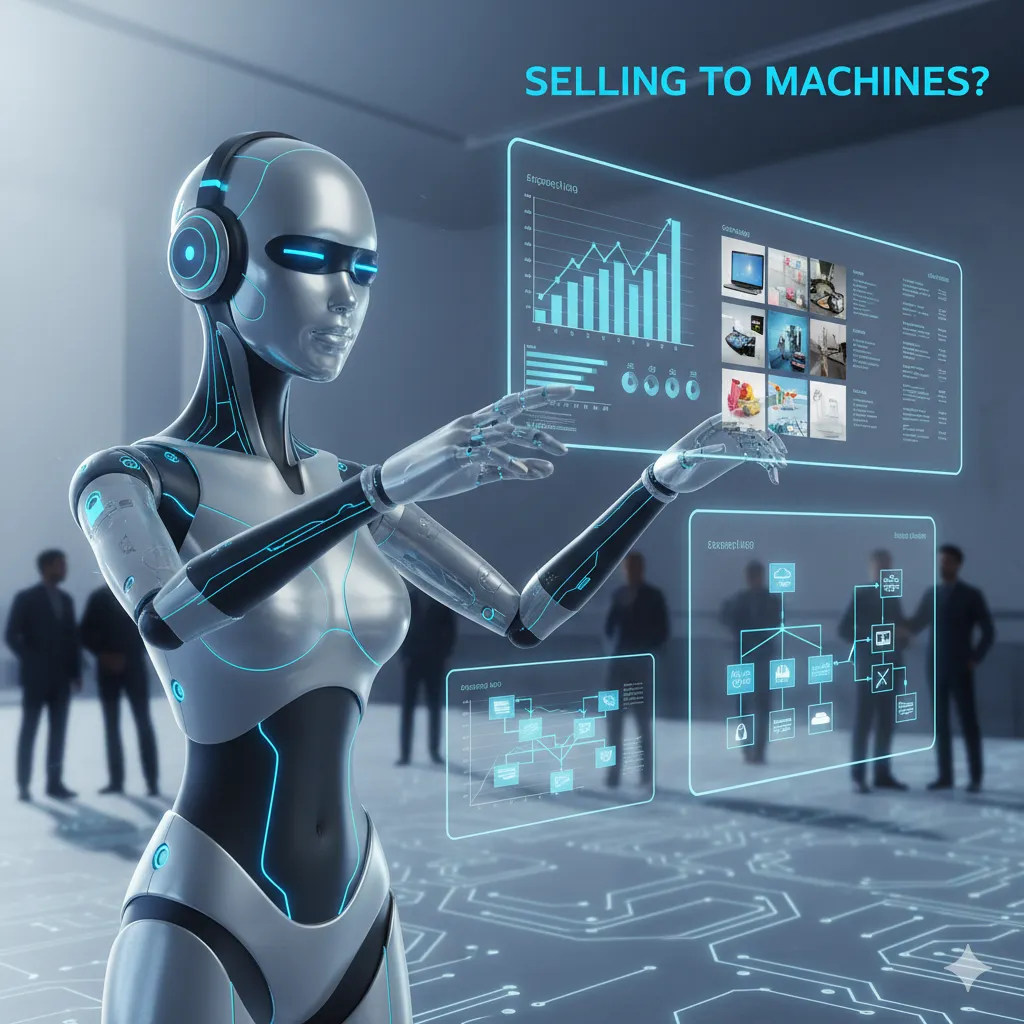Quick Summary
- AI agents are emerging as autonomous decision-makers in commerce.
- They may research, compare, and purchase products on behalf of humans.
- Traditional marketing tactics are becoming less relevant in this shift.
- Brands must optimize for discoverability by machines, not just humans.
- Human creativity, storytelling, and ethics still play a critical role.
What Is an AI Agent?
An AI agent is a software program that can observe its environment, make decisions, and act to achieve specific goals without constant human instruction. These agents are not just tools. They are designed to think, adapt, and operate on our behalf.
Picture an AI system that books your flights, orders groceries, or selects the best vendor for your business. It doesn’t need supervision. It evaluates options, compares costs, and makes the purchase, all automatically.
This technology is advancing rapidly, especially as large language models and intelligent assistants become more mainstream. These systems are not just responding to prompts. They are proactively solving problems and initiating tasks.
Why AI Agents Are Becoming the New Customers
AI agents are poised to become major players in the buying process. Here’s why.
They Save Time and Reduce Errors
AI can process information faster than humans. It doesn’t get tired or distracted. For repetitive decisions, like finding the best deal or tracking a delivery, AI is more efficient.
They Scale Easily
A single AI agent can interact with hundreds of systems at once. That means businesses, especially large enterprises, will rely on fleets of AI agents to handle transactions, vendor selection, and negotiations.
The Interface to Commerce Is Changing
Humans traditionally interacted with websites, ads, or apps. But AI agents bypass these. They access APIs, scan product databases, and compare reviews through structured data. The days of scrolling through 10 pages of Google results are numbered.
Data Drives Their Decisions
AI agents need clean, structured, and accessible data. If your product information is buried in PDFs or unstructured web pages, it might as well not exist to them.
What This Means for Marketing and Sales
AI agents don’t care about your flashy ads or clever slogans. They care about data quality, consistency, and logic.
Here’s what changes:
Target Audiences Will Include Machines
Your audience is no longer just humans. It includes the software acting on their behalf. If your marketing is only designed to appeal to people emotionally, it may not even reach them.
Discoverability Becomes Critical
Search Engine Optimization (SEO) must evolve into Machine Agent Optimization. That means:
- Clean product metadata
- Structured content using schema.org markup
- Fast-loading, mobile-first websites
- APIs that allow agents to retrieve information easily
The Funnel Gets Compressed
Agents don’t “browse” the way people do. They don’t linger on landing pages or get distracted by pop-ups. They look for the most relevant, cost-effective solution based on their criteria and then act.
How Brands Can Adapt Starting Today
If this sounds like a far-off future, think again. There are practical, beginner-friendly steps you can take right now.
1. Audit Your Data
Use a structured data markup like Schema.org to clearly define your products, services, prices, and reviews. Make sure this information is crawlable and consistent across platforms.
2. Improve Machine Readability
Optimize your site for both humans and AI agents. That includes:
- Proper use of meta tags
- Consistent page structures
- Descriptive alt-text for images
- Avoiding excessive use of JavaScript that hides content from bots
3. Build a Simple API or Data Feed
If your business is product-heavy, consider offering an XML or JSON feed that AI agents can query. This improves visibility and accessibility for systems that bypass the traditional web interface.
4. Integrate With Smart Ecosystems
Be present where AI agents are active. This could include integrations with:
- Google Shopping
- Apple Business Connect
- Amazon’s API ecosystem
Enterprise procurement systems
5. Shift Your KPIs
Start tracking how your data performs in structured environments, not just how your ads perform with humans. Tools like Google Search Console and rich result testers can help.
The Human Edge in an Agent-Driven World
With machines making decisions, it’s easy to feel like the human element is being pushed out. But the opposite is true.
Humans Still Create the Narrative
AI agents don’t dream, empathize, or build trust. They can’t forge emotional connections or create cultural relevance. Only people can do that.
Storytelling Still Matters
While agents handle transactions, humans still consume the brand stories that build loyalty. Your brand voice, visuals, and messaging must continue to resonate with real people.
Ethics, Bias, and Oversight
AI agents follow the rules they’re given. Without proper guidance, they can reinforce bias or make cold, misaligned decisions. It’s up to human teams to build ethical, inclusive systems and oversee outcomes.
Final Thoughts
Your next customer may not be human. It may be an intelligent software agent empowered to decide, select, and buy.
This doesn’t make traditional marketing obsolete—it makes it smarter. It asks us to think beyond human persuasion and into machine comprehension. It invites us to make our content clearer, our data cleaner, and our strategies more adaptable.
Most of all, it challenges us to keep the human heart in everything we do.
Because even in a world run by agents, what people feel will always matter.
Discover how AI is reshaping technology, business, and healthcare—without the hype.
Visit InfluenceOfAI.com for easy-to-understand insights, expert analysis, and real-world applications of artificial intelligence. From the latest tools to emerging trends, we help you navigate the AI landscape with clarity and confidence.


